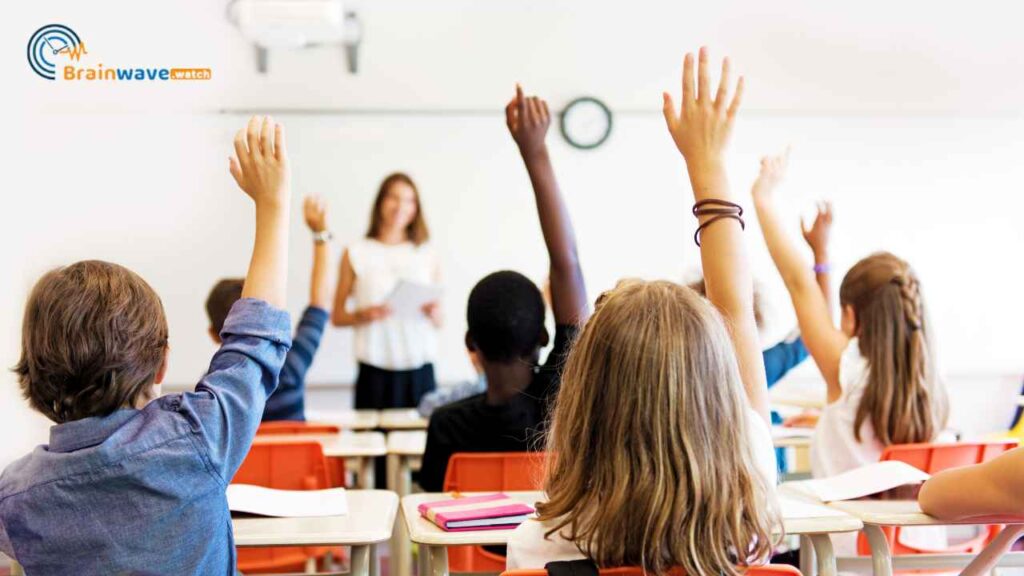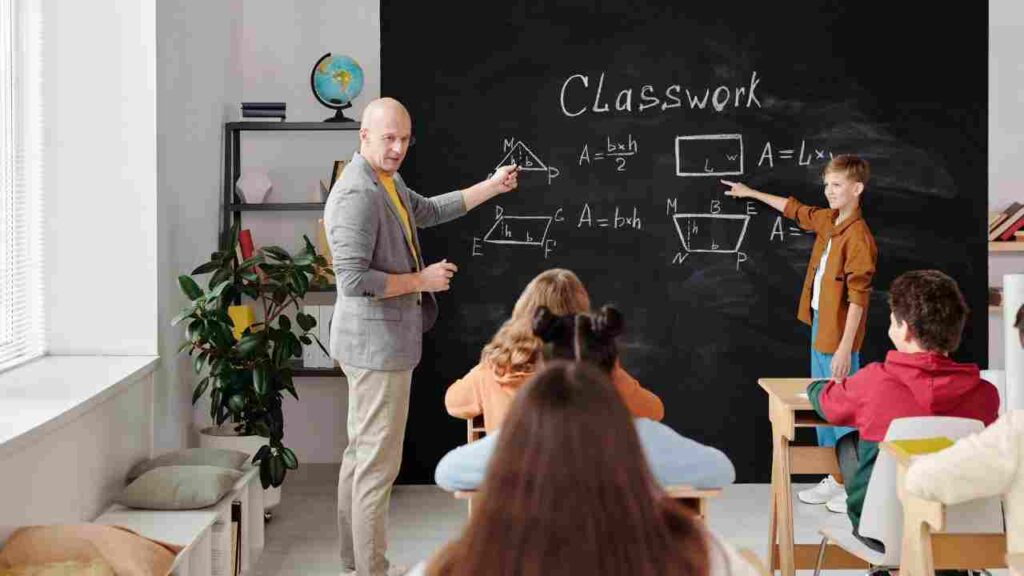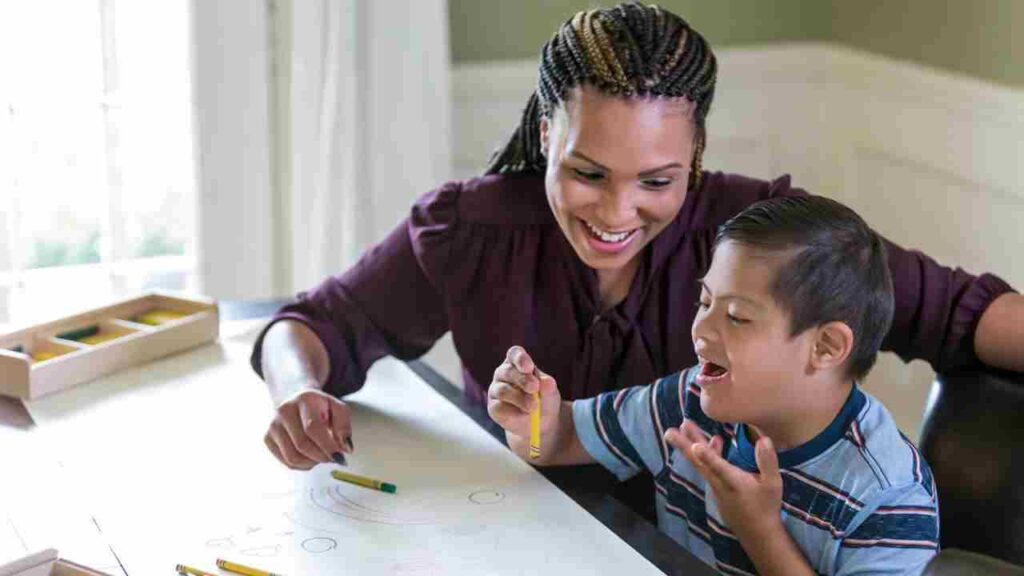The Individuals with Disabilities Education Act (IDEA) requires that all children with disabilities, including autism, receive a free appropriate public education (FAPE) in the least restrictive environment (LRE). This means that children with autism should be educated alongside their non-disabled peers to the maximum extent appropriate.
Various types of programs and schools provide specialized education and support for children with autism. Some schools are specifically designed for children with autism, while others offer inclusive programs that integrate children with autism into mainstream classrooms.
The best schools for autism provide evidence-based interventions and individualized education plans (IEPs) tailored to the unique needs of each child. These interventions may include Applied Behavior Analysis (ABA), speech therapy, occupational therapy, and social skills training.
Parents and caregivers should consider various factors when selecting a school for their child with autism, such as the school’s curriculum, staff qualifications and experience, class size, and availability of support services. It is important to note that what works for one child with autism may not work for another, and parents should work closely with educators and healthcare providers to develop a customized education plan for their child.
Criteria for Evaluating Schools for Autism
When evaluating schools for autism, it is essential to consider several factors to ensure that the school meets the unique needs of children with autism. Below are some of the criteria that parents and caregivers should consider when evaluating schools for autism:
1. Individualized Education Plan (IEP)
An IEP is a legal document that outlines a child’s educational goals and the services and accommodations necessary to achieve those goals. A school that offers individualized education plans is crucial for children with autism, as they require tailored support to reach their full potential. Parents and caregivers should ensure that the school has a system in place to develop, implement, and monitor IEPs for each student.
2. Qualified Staff
Schools for autism should have a team of qualified and experienced professionals, including special education teachers, speech therapists, occupational therapists, and behavior analysts. These professionals should have experience working with children with autism and be trained in evidence-based interventions and strategies.
3. Positive Behavioral Supports
Children with autism may exhibit challenging behaviors that can interfere with their learning and socialization. A school that uses positive behavioral supports can help children with autism learn appropriate behaviors and reduce challenging behaviors. Positive behavioral supports are evidence-based strategies that focus on teaching and reinforcing positive behaviors rather than punishing negative behaviors.
4. Communication and Socialization
Children with autism often struggle with communication and socialization skills. A school that offers speech therapy, social skills training, and other interventions to support these skills is crucial. Parents and caregivers should ensure that the school has a plan in place to support communication and socialization skills.
5. Inclusive Environment
An inclusive environment is essential for children with autism to thrive. A school that promotes inclusion and diversity can help children with autism develop positive relationships with their peers and feel valued and respected. Parents and caregivers should ensure that the school has a plan in place to promote an inclusive environment and accommodate the unique needs of each student.
By considering these criteria, parents and caregivers can evaluate schools for autism and choose the best option for their child.
Top Rated Autism Schools in the USA
When it comes to finding the best schools for children with autism in the USA, there are several factors to consider. These factors include the school’s curriculum, teaching methods, staff qualifications, and facilities. Based on these factors, here are some of the top-rated autism schools in the USA:
1. The Ivymount School, Rockville
The Ivymount School is a special education day school established in 1961 that serves children with autism spectrum disorders, health impairments, developmental delays, and speech and language deficits. The school has about 200 students with an age range from six to 21. The school’s curriculum is designed to meet the individual needs of each student, and the teaching methods include applied behavior analysis (ABA) and other evidence-based interventions. The school’s staff includes certified special education teachers, speech and language pathologists, occupational therapists, and behavior analysts.
2. The New England Center for Children, Southborough
The New England Center for Children (NECC) is a private, nonprofit school that provides education and treatment for children with autism. The school’s curriculum is based on the principles of ABA and is designed to help children acquire the skills they need to become independent and successful adults. The NECC’s staff includes board-certified behavior analysts, licensed psychologists, and certified special education teachers.
3. The Center for Discovery, Harris
The Center for Discovery is a residential school that provides education and treatment for children with autism and other developmental disabilities. The school’s curriculum is based on the principles of ABA and is designed to help children acquire the skills they need to become independent and successful adults. The school’s staff includes certified special education teachers, speech and language pathologists, occupational therapists, and behavior analysts.
4. The May Institute, Randolph
The May Institute is a nonprofit organization that provides education, rehabilitation, and behavioral healthcare services for children and adults with autism and other developmental disabilities. The school’s curriculum is based on the principles of ABA and is designed to help students acquire the skills they need to become independent and successful adults. The May Institute’s staff includes board-certified behavior analysts, licensed psychologists, and certified special education teachers.
These top-rated autism schools in the USA provide a high-quality education and treatment for children with autism. They have a proven track record of success and are dedicated to helping children with autism reach their full potential.
Public vs. Private Education for Autism
When it comes to education for children with autism, parents and caregivers have the option to choose between public and private schools. Each option has its advantages and disadvantages, and it is important to consider the needs of the child before making a decision.
Public Schools
Public schools are funded by the government and are required to provide education to all students, including those with disabilities. They are typically larger and have more resources than private schools. Public schools also have special education programs and services that are designed to meet the needs of children with autism.
However, public schools may not always be the best option for children with autism. They may have large class sizes and may not be able to provide the individualized attention that some children with autism require. Additionally, public schools may not have the same level of expertise and specialized training that private schools have.
Private Schools
Private schools are not funded by the government and are typically smaller than public schools. They may have more specialized programs and services for children with autism, and they may be able to provide more individualized attention. Private schools may also have a higher level of expertise and specialized training in working with children with autism.
However, private schools can be expensive, and not all families can afford the tuition. Additionally, private schools may not be regulated by the government and may not be required to provide the same level of services and accommodations as public schools.
Specialized Autism Programs in Public Schools
Many public schools across the United States offer specialized programs for children with autism. These programs can vary in structure and approach, but they generally fall into two categories: inclusion programs and self-contained classrooms.
Inclusion Programs
Inclusion programs are designed to integrate students with autism into regular classrooms alongside their peers without disabilities. These programs often provide support in the form of a special education teacher or paraprofessional who can help students with autism stay on task, manage their behavior, and participate in classroom activities. Inclusion programs can be a good choice for students who can function in a regular classroom setting with some additional support.
Self-contained Classrooms
Self-contained classrooms are designed specifically for students with autism and other disabilities. These classrooms are typically smaller than regular classrooms and have a lower student-to-teacher ratio. They may also have specialized equipment and materials to support students with autism. Self-contained classrooms can be a good choice for students who need more intensive support and instruction than they can get in a regular classroom setting.
It is important to note that not all public schools offer specialized autism programs, and the quality of these programs can vary widely from school to school. Parents of children with autism should research their options carefully and consider factors such as the school’s track record with autism education, the qualifications of the teachers and staff, and the availability of support services such as speech therapy and occupational therapy.
Private Therapeutic Schools and Their Approaches
Private therapeutic schools offer a specialized environment for students with autism. These schools have a comprehensive approach to education, therapy, and support that is tailored to meet the unique needs of each student.
One of the key features of these schools is the use of evidence-based therapies such as Applied Behavior Analysis (ABA), speech therapy, and occupational therapy. These therapies are integrated into the daily curriculum and are designed to help students develop social skills, communication skills, and independence.
In addition to therapy, private therapeutic schools also focus on academic skills. They offer a highly structured program that is designed to help students develop academic skills at their own pace. This includes individualized instruction, small class sizes, and a focus on hands-on learning.
Private therapeutic schools also emphasize the importance of developing independent living skills. They provide training in daily living activities such as cooking, cleaning, and personal hygiene. This helps students to become more self-sufficient and prepares them for life beyond the classroom.
Support Services in Schools for Autism
Schools for children with autism provide various support services to help them develop the skills they need to succeed. Such services may include occupational therapy, speech therapy, and behavioral therapy.
Occupational Therapy
Occupational therapy (OT) is a type of therapy that focuses on helping children with autism develop the skills they need to perform everyday tasks. OT can help children with autism improve their fine motor skills, sensory processing, and social skills. Schools for children with autism often have occupational therapists on staff who work with students to help them develop these skills.
Speech Therapy
Speech therapy is another type of therapy that is often provided in schools for children with autism. Speech therapy can help children with autism improve their communication skills, including their ability to speak, understand language, and use nonverbal communication. Speech therapists may also work with children with autism to help them develop social communication skills, such as taking turns in conversation and understanding social cues.
Behavioral Therapy
Behavioral therapy is a type of therapy that focuses on changing behavior by reinforcing positive behavior and discouraging negative behavior. Behavioral therapy can be especially helpful for children with autism who struggle with behavior issues. Schools for children with autism often have behavior specialists on staff who work with students to help them develop appropriate behavior and social skills.
Financial Considerations for Autism Education
When considering the best schools for autism in the USA, it is important to take into account the financial considerations associated with autism education. The cost of education for children with autism can vary widely depending on the type of school and the level of support needed.
One option for families is to look into public schools that offer special education services for children with autism. These services may include individualized education plans (IEPs) and support from special education teachers. However, not all public schools have the resources to provide the level of support needed for children with autism.
Another option is to look into private schools that specialize in autism education. These schools may offer a more individualized approach to education and provide a range of services such as speech therapy, occupational therapy, and behavioral therapy. However, private schools can be expensive and may not be covered by insurance.
Families can also consider homeschooling as an option for autism education. This can be a cost-effective option but requires a significant amount of time and resources from the parents.
Families need to research their options and consider the financial implications of each before deciding on the best school for their child with autism. Families may also want to look into financial aid options such as scholarships, grants, and loans to help offset the cost of education.
Legal Rights and Education Laws
Parents of children with autism have several legal rights and protections when it comes to their education. The Individuals with Disabilities Education Act (IDEA) is the federal law that governs the education of children with disabilities, including autism. It requires that schools provide a free appropriate public education (FAPE) to all children with disabilities, which includes those with autism.
Under IDEA, children with autism are entitled to an individualized education program (IEP) that is tailored to their unique needs. The IEP outlines the child’s strengths and weaknesses, sets measurable goals, and details the services and accommodations that the school will provide to help the child meet those goals. Parents have the right to participate in the development of the IEP and to request changes if they feel that it is not meeting their child’s needs.
In addition to IDEA, the Americans with Disabilities Act (ADA) provides civil rights protections to people with autism. The ADA prohibits discrimination against individuals with disabilities in all areas of public life, including education. This means that schools cannot deny admission to a child with autism or provide unequal opportunities based on their disability.
Parents need to understand their child’s legal rights and protections when it comes to their education. They can work with their child’s school to ensure that their child is receiving the services and accommodations that they are entitled to under the law. If they feel that their child’s rights are being violated, they can file a complaint with the Department of Education or seek legal assistance.
State-Specific Autism Education Resources
When it comes to finding the best schools for autism in the USA, it is important to consider the resources available in each state. The following is a brief overview of state-specific autism education resources that can help parents and caregivers find the best schools for their children.
California
California has several resources available for parents of children with autism, including the California Autism Professional Training and Information Network (CAPTAIN), which provides training and support to educators and families. The state also has several specialized schools for students with autism, including the California Autism Foundation and the San Andreas Regional Center.
Texas
Texas has a range of resources available for parents of children with autism, including the Texas Autism Resource Guide for Effective Teaching (TARGET), which provides information and resources for educators and families. The state also has several specialized schools for students with autism, including the Autism Treatment Center and the Texas Autism Academy.
Pennsylvania
Pennsylvania has several resources available for parents of children with autism, including the Pennsylvania Autism Training and Technical Assistance Network (PaTTAN), which provides training and support to educators and families. The state also has several specialized schools for students with autism, including the Vista School and the Melmark School.
Virginia
Virginia has a range of resources available for parents of children with autism, including the Virginia Autism Council, which provides information and resources for educators and families. The state also has several specialized schools for students with autism, including the Faison School for Autism and the Commonwealth Autism Service.
Tennessee
Tennessee has several resources available for parents of children with autism, including the Tennessee Autism Spectrum Disorder Task Force, which provides information and resources for educators and families. The state also has several specialized schools for students with autism, including the Autism Society of Middle Tennessee and the Autism Education and Therapy Center.
Parent and Student Testimonials
When it comes to choosing the best school for a child with autism, it’s important to hear from parents and students who have firsthand experience. Below are some testimonials from parents and students of schools that are highly recommended for children with autism:
- Marshall University College Program for Students with Autism Spectrum Disorder: One parent shares, “We attended our son Nick’s college graduation from Marshall University. Nick’s involvement with The College Program for Students with Autism Spectrum Disorder at Marshall was invaluable and a key reason that Nick was able to succeed at school.” Another parent adds, “The College Program was a game changer for our son and our family. It allowed him to live independently, learn valuable life skills, and have a college experience.”
- The Ivymount School: A parent of a student at The Ivymount School says, “Ivymount has exceeded our expectations in every way. Our son has made tremendous progress academically, socially, and emotionally. The teachers and staff are incredibly dedicated and caring, and they truly understand the needs of children with autism.”
- The New England Center for Children: A parent of a student at The New England Center for Children shares, “The New England Center for Children has been a godsend for our family. Our son has made incredible progress since starting at the school, and we are so grateful for the dedicated and knowledgeable staff.”
These testimonials demonstrate the positive impact that these schools can have on the lives of children with autism and their families. It’s important to note that every child is unique, and what works for one child may not work for another. However, hearing from parents and students who have had positive experiences can provide valuable insight when making a decision about which school to choose.







